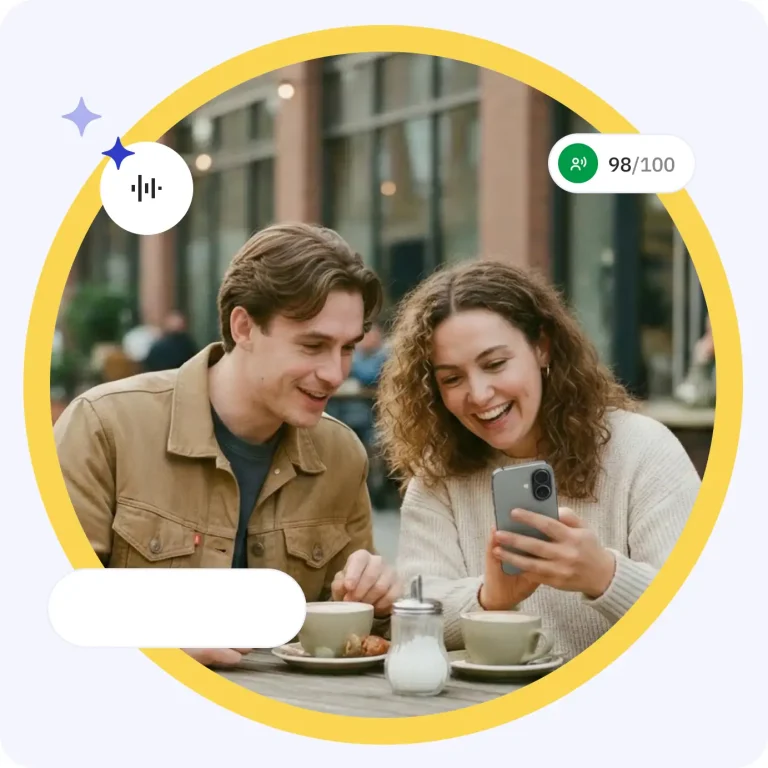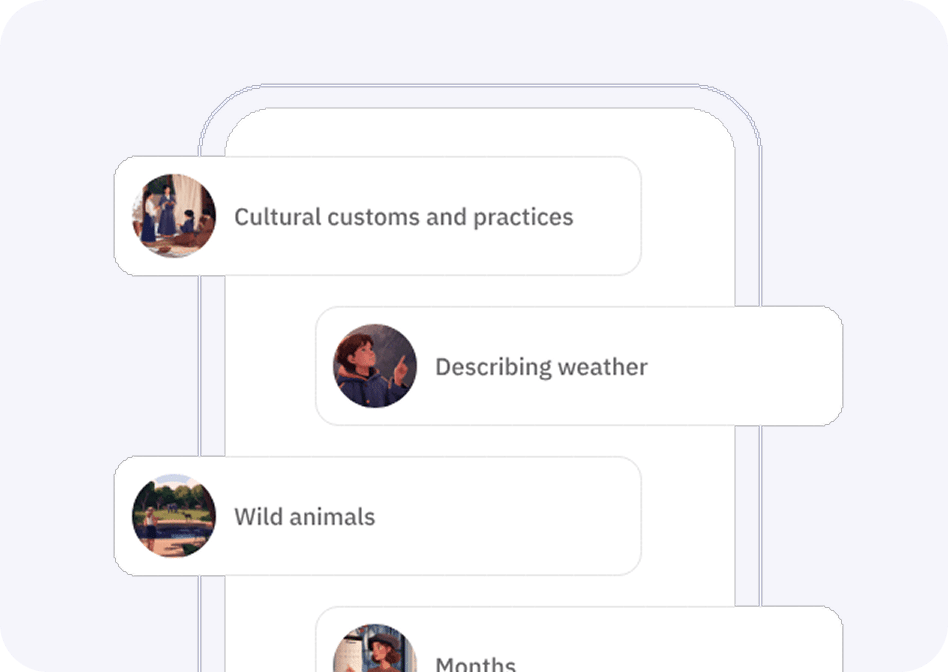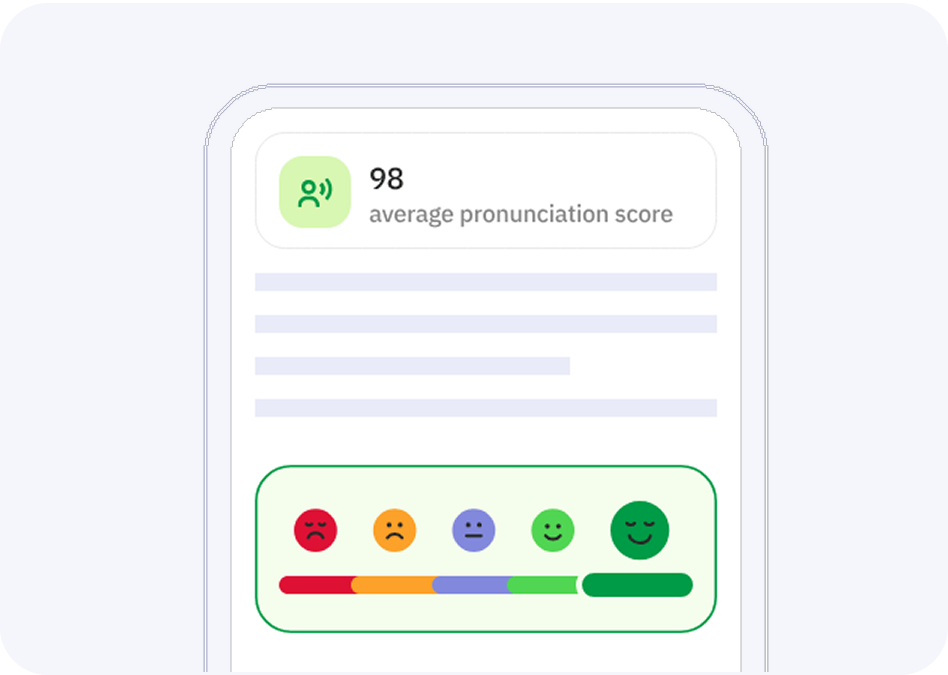The Best Way To Start Speaking A New Language
Learning to speak a new language is an exciting yet challenging adventure. Whether you're expanding your horizons for career advancement, personal enrichment, or travel experiences, exploring a new language is both rewarding and fulfilling. The most daunting question for many eager learners is, "How do I actually start speaking?" This guide highlights proven techniques and strategies that will help you confidently communicate in a new language as quickly and efficiently as possible.

The talkpal difference

Personalized Education
Every student has a distinct approach to acquiring knowledge. Through Talkpal technology, we analyze the study habits of millions of users at the same time. This data helps us craft highly effective educational tools that are fully tailored to fit the personal preferences and goals of each individual.

Cutting-Edge Technology
Our main goal is to lead the way in providing accessible and customized study experiences for all users. We utilize the most recent breakthroughs in modern innovation and AI to ensure everyone can benefit from a smart and responsive learning environment.

Making Learning Fun
We have transformed the study process into a delightful activity. Staying motivated with online courses can often be difficult, so we designed Talkpal to be incredibly captivating. Our platform is so entertaining that many users prefer developing their abilities here rather than spending time on video games.
LANGUAGE LEARNING EXCELLENCE
The most efficient way to learn a language
Try Talkpal for freeWhy Speaking Early Matters
When starting a new language, many people spend too much time concentrating on grammar and vocabulary lists while neglecting the practice of actual conversation. While grammar rules and vocabulary are essential, speaking from the outset has numerous benefits, which include:
- Building your communication skills rapidly
- Boosting your confidence and motivation
- Improving your pronunciation from an early stage
- Connecting you quickly with native speakers and culture
How to Get Started Speaking a New Language Today
Below, we’ve outlined the best tips and strategies that you can start implementing right away to accelerate your verbal communication skills.
1. Prioritize Commonly Used Phrases and Expressions
When you first begin, focus specifically on high-frequency phrases. These are simple expressions commonly used in everyday conversation.
- Greetings (“Hello”, “How are you?”)
- Introduction phrases (“My name is…”, “I’m from…”)
- Common courtesy phrases (“Thank you”, “Please”, “Excuse me”)
- Simple everyday expressions (“Where is the restroom?”)
Focusing on these phrases allows you to engage early in meaningful communication.
2. Practice Speaking Out Loud Daily
Speaking out loud from the start is essential for developing language fluency.
- Talk to yourself. Narrate your daily activities aloud in your new language.
- Repeat phrases after a native speaker from videos and podcasts.
- Record yourself speaking and listen to it. This helps in correcting pronunciation errors.
- Use language apps that encourage conversational exercises.
3. Immersive Exposure to the Language
Immersion is one of the fastest ways of gaining proficiency when learning a new language.
- Watch movies and TV series in the target language.
- Listen to music and radio broadcasts to familiarize yourself with rhythm and intonation.
- Regularly interact with native speakers online or through in-person meetups, language exchanges, and community events.
4. Simple Grammar and Vocabulary Integration
In the initial stages, keep your grammar lessons simple and focused on practical language use.
- Prioritize grammar that directly improves conversation ability (basic sentence structures, verbs tenses relevant to daily routines).
- Use flashcards and spaced repetition apps to steadily build up your vocabulary.
5. Leveraging Technology as an Effective Tool
Embrace technology to enhance your speaking practice.
- Use apps (e.g., Talkpal, Duolingo, HelloTalk) that allow conversation practice and interaction with native speakers.
- Access YouTube channels and online podcasts dedicated specifically to language learning.
- Utilize online tutoring platforms for affordable, convenient lessons via Skype and Zoom.
6. Don’t Fear Mistakes––They Are Essential!
Accept mistakes as part of your language-learning process.
- Understand that making mistakes helps you remember the right usage next time.
- Take corrections gently and positively.
- Continuously ask questions to accelerate your learning process.
7. Commit Yourself to Regularity and Consistency
Consistency and frequency matter more than lengthy sessions.
- Regular daily practice even for a short 20–30 minutes proves more beneficial than one long session each week.
- Set attainable speaking goals and gradually increase them as your comfort and proficiency
- grow.
Conclusion: Begin Your Speaking Journey Today
The key to successful language speaking lies in consistently practicing and engaging creatively with the language. Get started today by implementing these proven methods. Stay confident, keep an open mind, and before long you will experience firsthand the joy of communicating fluently in a brand-new language!
The most efficient way to learn a language
Try Talkpal for freeFrequently Asked Questions
How Much Time per Day Should I Spend Practicing?
Can I Learn to Speak a Language by Watching Movies?
What's the Best Way to Improve Pronunciation?
How Do I Overcome My Fear of Speaking with Native Speakers?
Is It Necessary to Live in the Target Country to Speak a Language Fluently?







